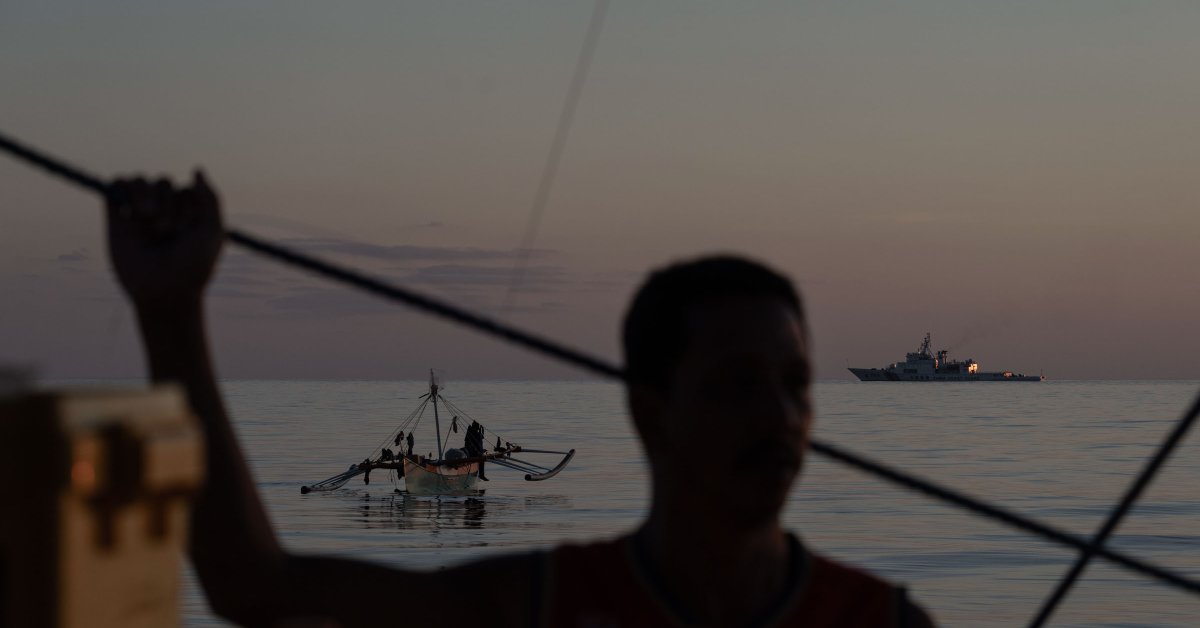How Global Politics Is Reshaping Our Oceans

Welcome to your ultimate source for breaking news, trending updates, and in-depth stories from around the world. Whether it's politics, technology, entertainment, sports, or lifestyle, we bring you real-time updates that keep you informed and ahead of the curve.
Our team works tirelessly to ensure you never miss a moment. From the latest developments in global events to the most talked-about topics on social media, our news platform is designed to deliver accurate and timely information, all in one place.
Stay in the know and join thousands of readers who trust us for reliable, up-to-date content. Explore our expertly curated articles and dive deeper into the stories that matter to you. Visit Best Website now and be part of the conversation. Don't miss out on the headlines that shape our world!
Table of Contents
How Global Politics is Reshaping Our Oceans: A New Era of Maritime Disputes and Cooperation
The world's oceans, once perceived as a boundless resource, are increasingly becoming a focal point of geopolitical tension and cooperation. From resource exploitation to military maneuvering, global politics is dramatically reshaping our seas, impacting everything from fishing rights to climate change mitigation efforts. Understanding these shifts is crucial to safeguarding the future of our marine environment.
The Rise of Maritime Disputes:
The competition for resources in the ocean is intensifying. The Arctic, with its melting ice caps revealing untapped oil and gas reserves, is a prime example. Nations like Russia, Canada, the United States, and Norway are increasingly asserting their claims, leading to potential conflicts over territory and resource ownership. This isn't limited to the Arctic; similar tensions exist in the South China Sea, where disputes over islands and maritime boundaries are fueling regional instability. These disputes are further complicated by the lack of clear legal frameworks in international waters, often leading to escalations and a need for strong international diplomacy.
The Importance of the United Nations Convention on the Law of the Sea (UNCLOS):
UNCLOS, often called the "constitution for the oceans," provides a legal framework for managing maritime activities. It defines territorial waters, exclusive economic zones (EEZs), and the rights and responsibilities of coastal states. However, its effectiveness hinges on the willingness of nations to adhere to its principles. The lack of a strong enforcement mechanism makes it challenging to resolve disputes and prevent illegal activities like overfishing and pollution. Furthermore, the interpretation and implementation of UNCLOS provisions often remain contentious, further complicating already delicate geopolitical situations.
Beyond Territorial Disputes: Climate Change and Ocean Governance:
The impact of climate change on oceans is another critical aspect of this evolving geopolitical landscape. Rising sea levels, ocean acidification, and changing weather patterns are affecting coastal communities and marine ecosystems worldwide. International cooperation is crucial to address these challenges effectively. Agreements like the Paris Agreement aim to limit greenhouse gas emissions, but their success depends on the collective commitment of nations. Failure to act decisively could lead to widespread ecological damage and exacerbate existing geopolitical tensions over dwindling resources.
The Role of Technology and Surveillance:
Technological advancements are also changing the dynamics of maritime power. Improved surveillance technologies, such as satellite imagery and underwater sensors, enhance the ability of nations to monitor their EEZs and detect illegal activities. This technological arms race, while potentially beneficial for protecting marine resources, also raises concerns about potential misuse and the escalation of maritime conflicts. The development of autonomous underwater vehicles (AUVs) and other advanced technologies further complicates the geopolitical landscape.
A Path Towards Cooperation:
Despite the challenges, there are opportunities for greater cooperation. International organizations, such as the International Maritime Organization (IMO) and the International Seabed Authority (ISA), play a vital role in setting standards and regulating ocean activities. Enhanced communication, collaborative research, and the creation of effective mechanisms for dispute resolution are crucial for building a more sustainable and peaceful maritime future. Focusing on shared interests, like combating illegal fishing and protecting biodiversity, can foster collaboration and reduce tensions.
Conclusion:
The future of our oceans is inextricably linked to global politics. Addressing the challenges requires a multifaceted approach that encompasses strong international law, effective governance structures, and a commitment to sustainable practices. By fostering cooperation and addressing the root causes of maritime disputes, we can safeguard the health of our oceans and ensure their sustainable use for future generations. Only through collaborative efforts can we navigate this new era of maritime politics and protect this vital global resource.

Thank you for visiting our website, your trusted source for the latest updates and in-depth coverage on How Global Politics Is Reshaping Our Oceans. We're committed to keeping you informed with timely and accurate information to meet your curiosity and needs.
If you have any questions, suggestions, or feedback, we'd love to hear from you. Your insights are valuable to us and help us improve to serve you better. Feel free to reach out through our contact page.
Don't forget to bookmark our website and check back regularly for the latest headlines and trending topics. See you next time, and thank you for being part of our growing community!
Featured Posts
-
 Trumps Treason Accusation A Case Study In Political Retribution
Jun 06, 2025
Trumps Treason Accusation A Case Study In Political Retribution
Jun 06, 2025 -
 Belmont Stakes A Look At The Running Horses And Their Odds
Jun 06, 2025
Belmont Stakes A Look At The Running Horses And Their Odds
Jun 06, 2025 -
 Climate Change Readiness When Should Businesses Prepare For A 2 C Scenario
Jun 06, 2025
Climate Change Readiness When Should Businesses Prepare For A 2 C Scenario
Jun 06, 2025 -
 Live Indonesia Vs China Battle For World Cup Qualification
Jun 06, 2025
Live Indonesia Vs China Battle For World Cup Qualification
Jun 06, 2025 -
 Can We Prevent Ai From Devastating The Job Market A Realistic Assessment
Jun 06, 2025
Can We Prevent Ai From Devastating The Job Market A Realistic Assessment
Jun 06, 2025
